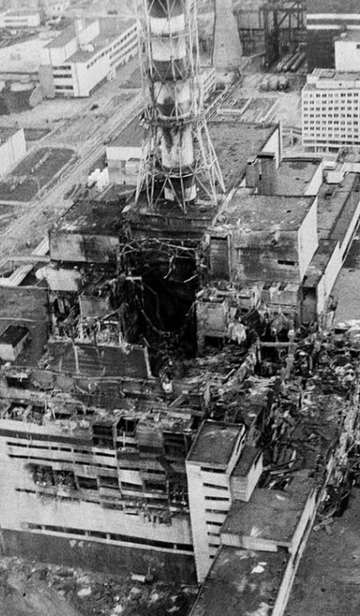
The Cost Of Silence: What Would YOU Do?
In 1986, a nuclear reactor exploded during a safety test in Soviet Ukraine. Dubbed the Chernobyl Disaster, the explosion caused dozens of direct casualties and immense harm to the people of Ukraine. But the explosion itself wasn’t necessarily what led to the catastrophic fallout that ensued.
Before I elaborate, I was curious to see how students at Middlesex would respond to such a catastrophic event. I asked three students how they would react to similar scenarios and what I found was not what I expected. I asked the following questions:
“If you were a government leader and your country’s top scientists told you that something terrible had happened and was going to cause harm to your people, would you tell the public and make your country look weak to your rivals, or would you preserve your country’s image and keep a facade of strength?”

“Would you risk panic from the public by telling the truth early, or would you wait until you had all of the facts to inform your citizens, even if that meant people might get hurt in the meantime?”
“If you were the mayor of your city and an explosion was threatening your people, would you evacuate everyone immediately or wait for orders from your higher-ups?”
In response to the first question, both Kyle McConnell ‘27 and an anonymous Middlesex student said that they would withhold information, but gave different reasons as to why. Kyle claimed that he “would try and fix it without telling the entire country and the world” because finding a solution would be easier without public panic. The anonymous student, however, was more focused on the political effects of revealing information, stating that the turmoil “could lead to diplomatic failures.”
When asked the second question, all three students said that they would wait until they had all of the information, but again, each student had a different reason for their answer. EJ McAuliffe ‘27 said he would wait because he “would risk misrepresenting information if [he revealed information] too early.”
Finally, each student responded the same exact way to the final question. In all answers, the students declared that they would immediately evacuate their city, despite governmental structure. EJ summarized the three arguments succinctly: simply put, there is “no need for higher judgement on that.” So if the decision is so definitively recognized by our students, surely the Soviet government thought the same, right? Wrong.
Soviet officials feared the national embarrassment and political turmoil that would come from releasing the facts of the event, so they chose to hide the truth from the public. According to the United Nations, “no reports were released until the third day after the Chernobyl explosion.” Thus, officials did not warn the nearby city of Pripyat until two days later. Boris Shcherbina, deputy head of the Soviet government and chairman of the high commission, arrived in Pripyat at around 8:00 PM on April 26th. By that time, almost no action had been taken to manage the consequences of the explosion, as none of the local Soviet officials cared to tarnish their reputation by associating the disaster with their name.

Overall, the Chernobyl Disaster was a tragedy made exponentially worse by misguided choices. While the explosion itself was a product of human error and design flaws, the widespread, catastrophic harm was inflamed by one central flaw: the fear of transparency.
The students that I interviewed aren’t nuclear physicists or experienced government officials, but still made what seemed to be the clear choice.
In contrast to Soviet leaders’ fear of political damage, Middlesex students used common sense and moral clarity to discover the obvious truth: protecting people should always come first. Chernobyl isn’t just history. It’s a warning. Today, governments and corporations face decisions similar to those made during the catastrophe of Chernobyl, having to choose between saving face and doing the right thing. At the hearts of the issues, everything from climate change to public health crises to data privacy breaches are modern Chernobyls in the making.
And so, I ask you, the reader:
What would you do?
